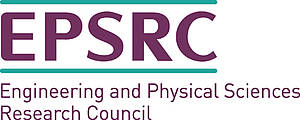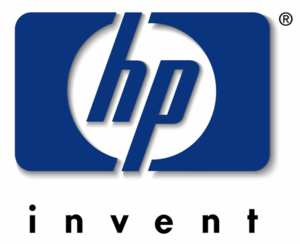The 9th CREST Open Workshop
Code Provenance and Clone Detection
Date:
Tuesday, 23rd November, 2010
Venue:
Lethaby Room
Mary Ward House (Directions)
Overview:
Until recently, clone detection was mainly used to find the source code parts of a system that have been copied. However, the availability of clone detection techniques and tools made it possible to apply them to other areas of interest, for example, code provenance. Research has shifted from support to answer the question "Where is code duplicated?" to "Where is this code coming from and what happened to it?". Answers to the second question are needed in the area of source code management, copyright auditing, plagiarism detection, etc. This workshop will explore advanced clone detection and related areas in a discussion-oriented setting.
Keynote:
Licensing is Software too: Achievements and Challenges in Source Code Provenance Analysis
Massimiliano Di Penta, University of Sannio, Italy
ABSTRACT: Software licenses determine, from a legal point of view, the way in which Free, Libre and Open Source Software (FLOSS) can be (re)distributed, and how component released under different licenses can be inter-connected. This talks advocates that, when analyzing a software system for various purposes, such as doing a dependence analysis, studying software evolution, or determining the provenance a source code artifact, the content of licensing stated in a source code file or in a component is something that plays a crucial role, and that cannot be ignored. The talk outlines how licensing can influence the direction in which source code migrates from one system towards another, how licensing can determine architectural changes in a software system, or how it can even determine the success or failure of a project or of its competitor. Also, it shows that licensing issues are bugs too, fixing which is nothing but trivial. This opens the roads towards a multi-disciplinary research areas, involving experts in source code analysis, text mining, and laws.
BIOGRAPHY: Massimiliano Di Penta is assistant professor at the University of Sannio, Department of Engineering, Italy. He received his laurea degree in Computer Engineering in 1999 and his PhD in Computer Engineering in 2003. His research interests include software maintenance and evolution, reverse engineering, empirical software engineering, search-based software engineering service-centric software engineering. He is author of over 130 papers appeared on journals, conferences and workshops. He serves and has served in the organizing and program committees of several conferences such as ICSE, ASE, ICSM, ICPC, CSMR, GECCO, MSR, SCAM, WCRE, and many others. He has been general chair of SCAM 2010, SSBSE 2010, WSE 2008, general co-chair of WCRE 2008, and program co-chair of SSBSE 2009, WCRE 2006 and 2007, IWPSE 2007, WSE 2007, SCAM 2006, STEP 2005, and of other workshops. He is steering committee member of ICPC, SCAM, CSMR, WCRE, IWPSE, and SSBSE. He is in the editorial board of the Empirical Software Engineering Journal edited by Springer.
Programme:
(Talks will be 20 minutes allowing 15 minutes for discussion and questions.)
09:00 Arrival, Coffee and Pastries
09:15 Welcome and Introductions (Slides, Video)
Jens Krinke, CREST Centre, SSE Group, Department of Computer Science, UCL
09:30 Licensing is Software too: Achievements and Challenges in Source Code Provenance Analysis (Slides, Video_1, Video_2)
Massimiliano Di Penta, University of Sannio, Italy
10:30 - 11:00 Refreshment
11:00 Techniques to Detect License Violations in Open-source Systems (Slides, Video)
Rainer Koschke, University of Bremen, Germany
11:35 Approaches to detection of source code plagiarism amongst students (Slides, Video)
Mike Joy, Warwick University, UK
12:10 Clone Detection in Natural Language Software Artifacts: Techniques and Applications (Slides, Video)
Elmar Juergens, Technical University of Munich, Germany
12:45 - 13:45 Lunch at the venue
13:45 Finding Clones in Max/MSP Patches (Audio)
Nicolas Gold, CREST Centre, SSE Group, Department of Computer Science, UCL
14:20 Detection of Chained Clone and Its Application (Slides, Video)
Norihiro Yoshida, Osaka University, Japan
14:55 Scalable clone detection and elimination for functional programming languages (Slides, Video)
Huiqing Li and Simon Thompson, University of Kent, UK
15:30 - 16:00 Refreshment
16:00 A Mutation / Injection-based Automatic Framework for Evaluating Code Clone Detection Tools (Slides, Video)
Chanchal Roy, University of Saskatchewan, Canada
16:35 What happened to my clone? (Slides, Video_1, Video_2)
Jens Krinke, CREST Centre, SSE Group, Department of Computer Science, UCL
17:10 Software Bertillonage: Determining the Provenance of Software Entities (Slides, Video)
Michael Godfrey, University of Waterloo, Canada
17:45 Wrap up and Close
This workshop is supported by the following sponsors:


|


Registered Attendees: (Get registered Here)
- Nadia Alshahwan, CREST Centre, SSE Group, Department of Computer Science, UCL
- Khalid Alzarooni, CREST Centre, SSE Group, Department of Computer Science, UCL
- Kelly Androutsopoulos, CREST Centre, SSE Group, Department of Computer Science, UCL
- Sue Black, SSE Group, Department of Computer Science, UCL
- David Clark, CREST Centre, SSE Group, Department of Computer Science, UCL
- Céline Dandois, University of Namur, Belgium
- Massimiliano Di Penta, University of Sannio, Italy
- Mateusz Dykiert, CREST Centre, SSE Group, Department of Computer Science, UCL
- Michael Godfrey, University of Waterloo, Canada
- Nicolas Gold, CREST Centre, SSE Group, Department of Computer Science, UCL
- Nils Göde, University of Bremen, Germany
- Tracy Hall, Brunel University, UK
- Jan Harder, University of Bremen, Germany
- Mark Harman, CREST Centre, SSE Group, Department of Computer Science, UCL
- Sebastian Hunt, City University London, UK
- Syed Islam, CREST Centre, SSE Group, Department of Computer Science, UCL
- Yue Jia, CREST Centre, SSE Group, Department of Computer Science, UCL
- Derek M. Jones, Knowledge Software Ltd, UK
- Mike Joy, University of Warwick, UK
- Elmar Juergens, Technical University of Munich, Germenay
- Rainer Koschke, University of Bremen, Germany
- Jens Krinke, CREST Centre, SSE Group, Department of Computer Science, UCL
- Huiqing Li, University of Kent, UK
- John Lyle, Oxford University Computing Laboratory, UK
- Matthew Moroz, SECReT Centre, UCL
- Jian Ren, CREST Centre, SSE Group, Department of Computer Science, UCL
- Daniel Rodriguez, University of Alcala, Spain
- Chanchal Roy, University of Saskatchewan, Canada
- Sandro Schulze, University of Magdeburg, Germany
- Simon Thompson, University of Kent, UK
- Akadej Udomchaiporn, CREST Centre, SSE Group, Department of Computer Science, UCL
- Shmuel Ur, Shmuel Ur Innovation, Israel
- Shin Yoo, CREST Centre, SSE Group, Department of Computer Science, UCL
- Norihiro Yoshida, Osaka University, Japan
- Min Zhang, University of Hertfordshire, UK
- Yuanyuan Zhang, CREST Centre, SSE Group, Department of Computer Science, UCL
